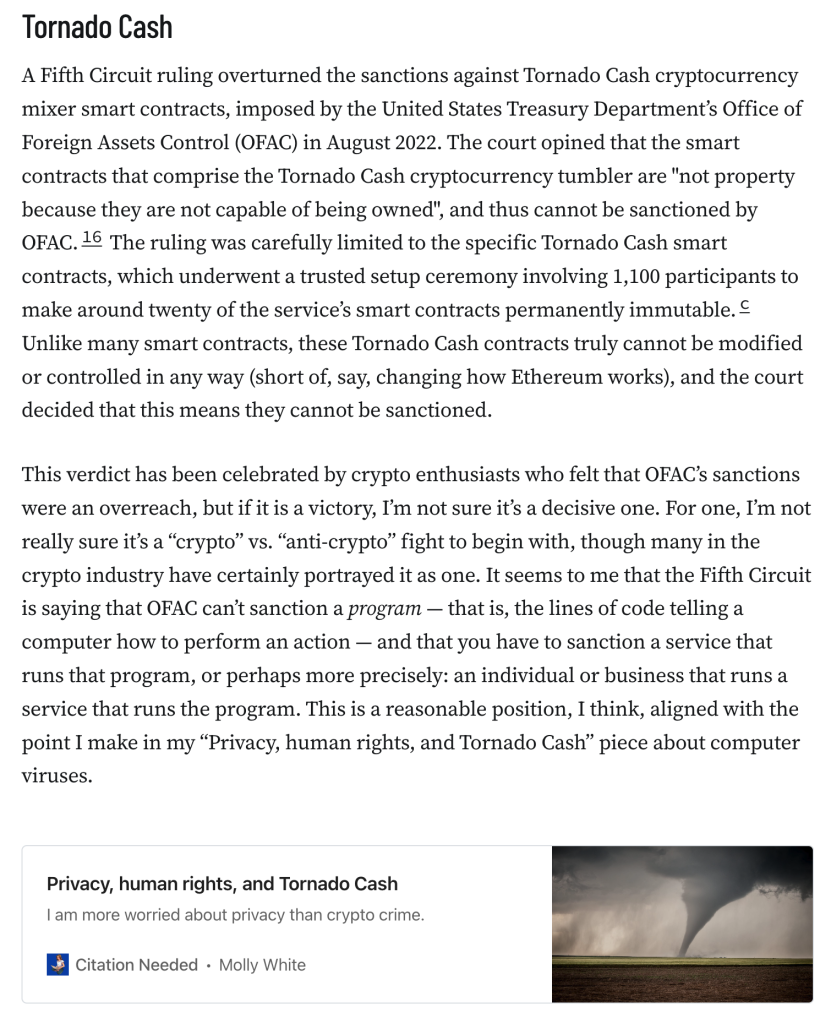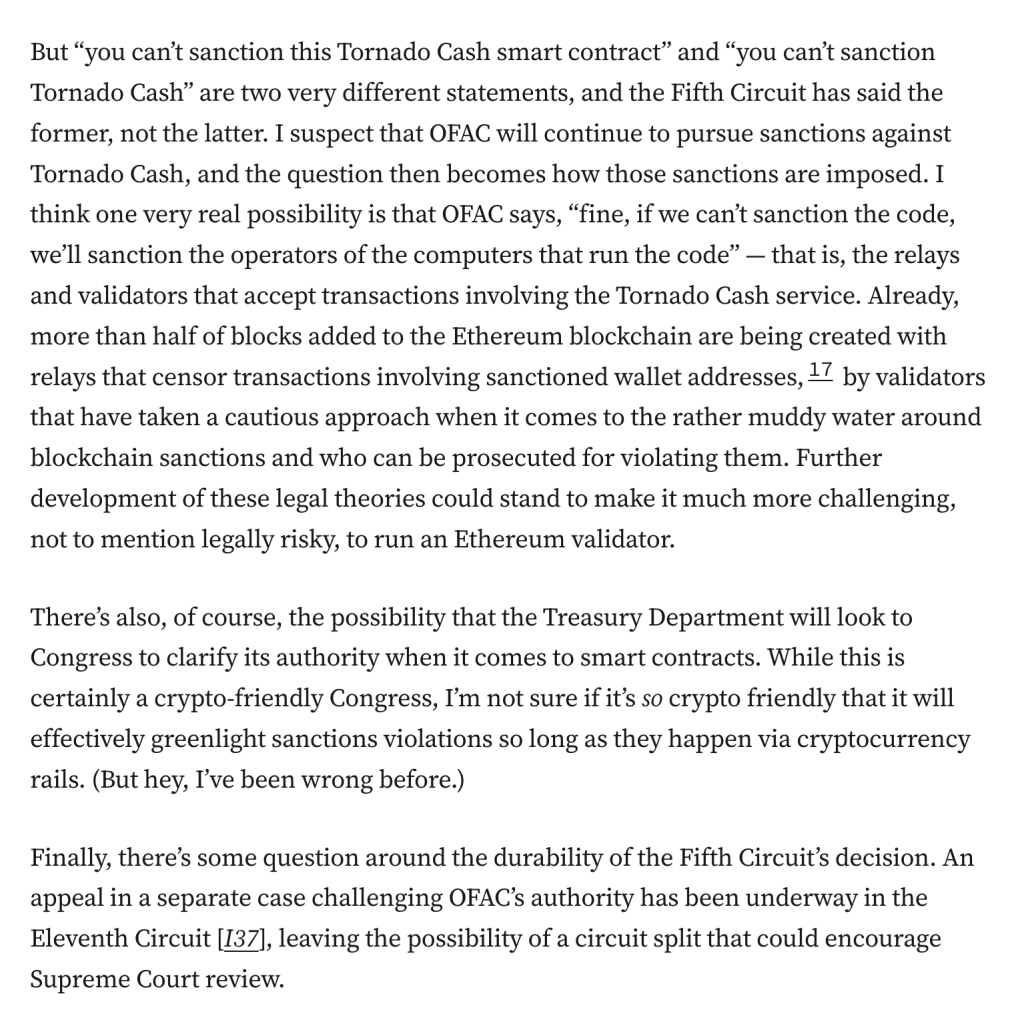Suche
Beiträge, die mit TornadoCash getaggt sind
The Fifth Circuit overturned some sanctions against Tornado Cash, determining that truly immutable smart contracts cannot be sanctioned. I’m not sure this will meaningfully change the effort to sanction the mixer, and it may actually make things worse for blockchain operators.
#crypto #cryptocurrency #TornadoCash
#crypto #cryptocurrency #TornadoCash


